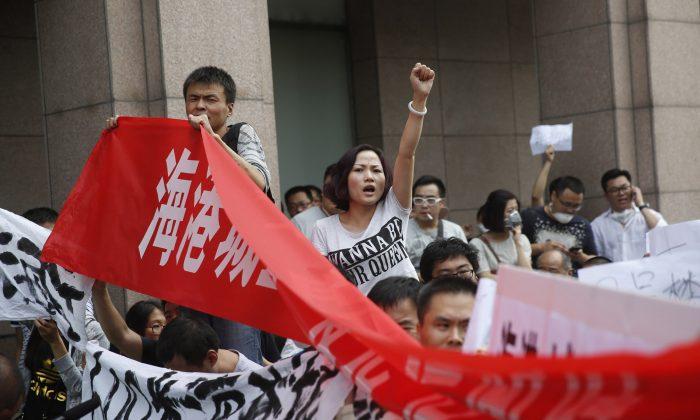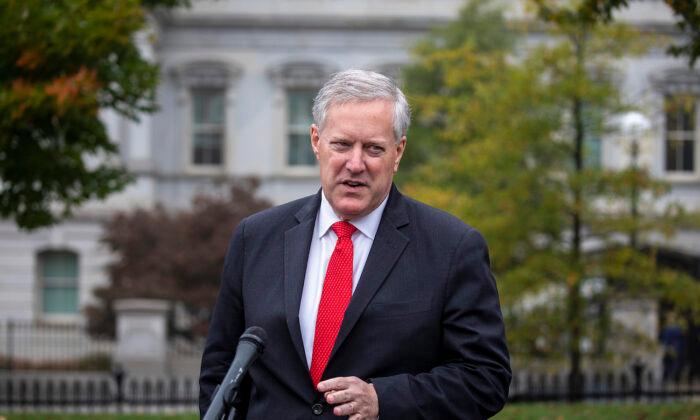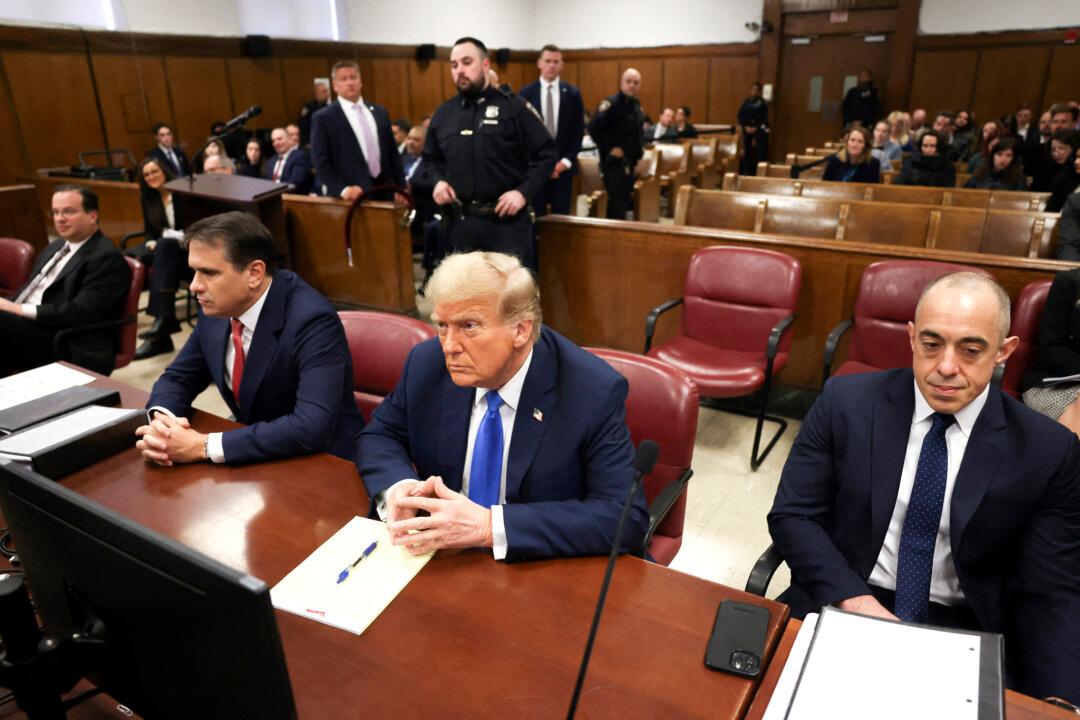The following is a translation of one of the last posts made by the internet denizen “The Year 1874” (@公元1874), a well-known user of Sina Weibo, China’s Twitter-like social media platform. The individual had over 3.5 million followers until his or her account was recently shut down. The post is a meditation on the nature of politics in China — on the one hand, it’s forbidden; yet on the other, it’s inescapable. The only constant is submission to the Communist Party. The piece focuses on a series of sudden destructions of status experienced by members of the middle class with whom the author is familiar. No one, he noticed, cared what happened to them, or was able to do anything about it. The original article was purged but is archived here. — Epoch Times translation team
Recently my account Gongyuan@1874 was shut down by censors because of discussions of domestic films.
Actually, years ago, I was already invited to “drink tea” [i.e. questioned by public security] during the Yilishen Ponzi scheme incident. Even though Yilishen was endorsed by a well-known municipal Party Secretary and famous political star [Bo Xilai and Zhao Benshan], it went bankrupt. The owner of Yilishen ran off, leaving behind 80 billion yuan in losses, causing many deaths and broken families. The Party Secretary, however, got promoted and went to the southwest, and the case was covered up. Netizens discussed this incident. I was managing the site at that time and was called by the national security to come in for a talk. I was forced to undergo thought training or be locked up for a few weeks.
At that time, I was indifferent to politics. You may not believe it, but I’m indifferent to politics even today. Many people don’t know what I do. I don’t like to talk about my job on the internet.
My job is to make videos and films for commercials, music videos, and for celebrities. It’s very romantic and has nothing to do with politics.
I told my friends that I have no interest in politics, and that started a conversation on politics. It was simply that I could not bear what I was seeing. But actually, I have always felt that these discussions are meaningless, because I don’t have much power, and it is difficult to make any significant change. Most of my friends are so-called middle class. They worry all day about making money, what kind of furniture or car to buy, and about their children’s international school expenses.
I have a Hong Kong friend who sends his child to an equestrian class. The monthly tuition fee is 20,000 Hong Kong dollars. He does it completely for social reasons, so that his child can mingle with children from well-to-do families and he can meet some of the parents.
There are many other social events in Hong Kong, but he never attends or cares about them.
I was like that in the past. But sometimes, things chase you, even though you don’t care about them.
I want to talk about two small things.
I lived in Beijing for ten years and met a lot of friends there. One was Wang Dali, a native of Beijing. He used to live in Dongcheng. After the demolition of their home, his parents lived in a small place in Nancheng. They used the extra money to buy a place in a new neighborhood in Dongsihuan. His living standard is quite high, and he spent 1.3 million yuan ($190,000) to fix up the place. When he finally moved in he experienced constant skin rashes and hair loss.
They later found out that there was a problem with the water. There used to be a plastic factory on this land, and now the soil was toxic.
When the subdivision was developed, the Environmental Protection Agency ordered the developers to clean up the land, which would cost them 90 million yuan ($13 million). What did the developers do? They bribed the officials with a few million yuan and simply got the certificate.
He has to take baths at public bath facilities and drink bottled water. He has lived like this for two years. Nobody cares.
He spent over a million yuan to fix this place up. He wanted a good life.
Nobody cares about him or the people in this neighborhood. Nobody dares to speak up. It was not even in the news.
Another Beijing friend worked in the maritime trade. His wife was from Tianjin. He always wanted a villa. Although his income was high, an apartment in Beijing cost over 10 million yuan. When he finally managed to get the downpayment, his father-in-law fell ill and was hospitalized. Without health insurance, my friend had to pay for the treatment. After about six months, his father-in-law passed away.
There was no money left for the villa. His mother-in-law was in poor health, and he and his wife had to visit her often. They thought about buying a villa in Tianjin. This seemed like a good option as houses in Tianjin were cheaper, and they could afford a villa-style home. At the same time they could take care of his mother-in-law.
After shopping for a long time, they finally bought a decent, 160 square meter, multi-story home. It was much cheaper than a place in Beijing. They used the leftover money as a down payment for a BMW X5.
Every day he went to work driving on the highway. He liked driving. He was happy.
Then his wife got pregnant and stayed home with her mother. The mother-in-law lived upstairs, and they were downstairs. Since he had a good disposition, family life was very harmonious.
Life was good until one night there was a huge explosion. Their house shook, and its foundation seemed to move. Homes near his neighborhood collapsed. He said it was like the film “Independence Day.”
It was the 2015 Tianjin chemical explosion that made global news. Authorities arranged for his family to stay in a small hotel nearby. When he went back to pick up some necessities, the house was surrounded by police who wouldn’t let him in.
Together with several other residents, he snuck in one day and found his home had been looted — it was a mess. When he complained to the authorities he was told to “respect the overall situation.”
After a few months, real estate developers found a testing organization, who told them that there were no safety problems with the house, and they could continue to live there.
He asked how they could live there with a giant crack through in the wall. His sales agent said he could patch it up with some cement.
Now he and his family are renting a place in Tongzhou.
His house just sits there, unrepaired, with a big crack.
I had the thought of giving these two stories the title, “Living the Illusion of China’s Middle Class.” But since it would surely be deleted, I decided not to.
Why did I call it an illusion? Because whenever you think you’ve got the good life, it can easily vanish all of a sudden.
My friends and I earn decent money each month. We can afford a comfortable life in a big city. But this life can disappear for any reason, such as toxic land or dangerous materials stored nearby, and even smog.
All this relates to politics. Sun Yat-sen once said that politics have existed as long as there have been people. Politics is a part of life. You say you do not care about politics, but sooner or later politics will catch up with you.
So I wanted to do my best to care about politics and change society. But I was very naive.
Last year my account was shut down three times. The first two times were due to discussing politics and speaking up for Zhao Wei [the assistant to human rights lawyer Li Heping]. I could understand why my account was shut down.
This time it was because of discussions of domestic films.
Today I noticed that many singers’ collections have been taken off the shelf. Now it’s the turn for film, television and music to be condemned as political.
I have in fact come to the humble realization that my power is too small. Being so-called “middle class,” all that I own might disappear all of a sudden. I thought I had power, but it was nothing.
Caring about the community, current affairs, and people’s livelihood is meaningless.
“Change the world little by little,” sounds very beautiful. But there is no point in doing it.
I cannot change the world, I can only change myself.
Before I was 25, I never thought about emigration. But I’m working hard towards it now.





Friends Read Free